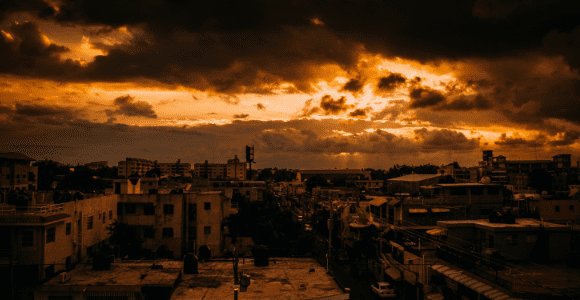Welcome readers! Please subscribe through the button on the right.
(Read this series from its beginning here.)

The Temple was the heart of Judaism during the time of Jesus, but let’s look at this week’s passage in more than its religious context. As the seat of the Jewish Temple State, the Temple was also the heart of the banking system and the food industry (both meat and grain), and the seat of political power for Judea under Rome.
Jesus’ criticisms should not be interpreted as anti-Jewish or anti-Judaism. Jesus was a faithful Jewish man debating within his own society, and his voice was one of many at the time arguing about what it meant to be a faithful Jewish follower of the Torah given the Torah’s teachings on the poor and eliminating poverty. Seen through this lens and given Jesus’ love for the poor of his own society, Jesus’s criticism of the state was a criticism of a system that had both created poverty and then further exploited those forced to live in that poverty.
Those living after the Jewish-Roman War of 66-70 C.E. would have recognized the events described in this week’s passage. As we’ve discussed, the Jewish-Roman War began an initial uprising of the poor against rich Temple elites who served as conduits of the Roman Empire. The poor people’s revolt began with their overrunning the Temple and burning all the debt records held against the poor, and each stage of the takeover escalated. Once the Jewish rebels gained control and Rome was brought in, a war broke out between the rebels and Rome while the Jewish elites futilely endeavored to maintain allegiance to Rome as violent uprising erupted all around them.
Josephus corroborates Mark’s descriptions of this era. In The War of the Jews, he describes “a great number of false prophets” who with “signs and wonders” promised “deliverance” or liberation. But in the end, their movements only resulted in masses of the “miserable people” who followed them being slaughtered by Rome (Book 6.285-309). Josephus also writes of the famine in Jerusalem that resulted when the grain storehouses “which would have been sufficient for a siege of many years” were burned by various “treacherous faction in the city” (5.21-26).Finally, he describes the burning the Temple itself (6.249-266).
Many more than Jesus called the people to address the plight of the poor and to end a system that financially benefited wealthy families at the poor’s expense. The rich got richer and the poor only got poorer.
So Mark’s gospel called its audience to see the overthrowing of such economically exploitative systems not as “the end,” but as the “beginnings of birth pains” for a new world.
This makes me think of some things we face today in our own societal contexts. We’ll consider a few of those next.
(Read Part 3)













